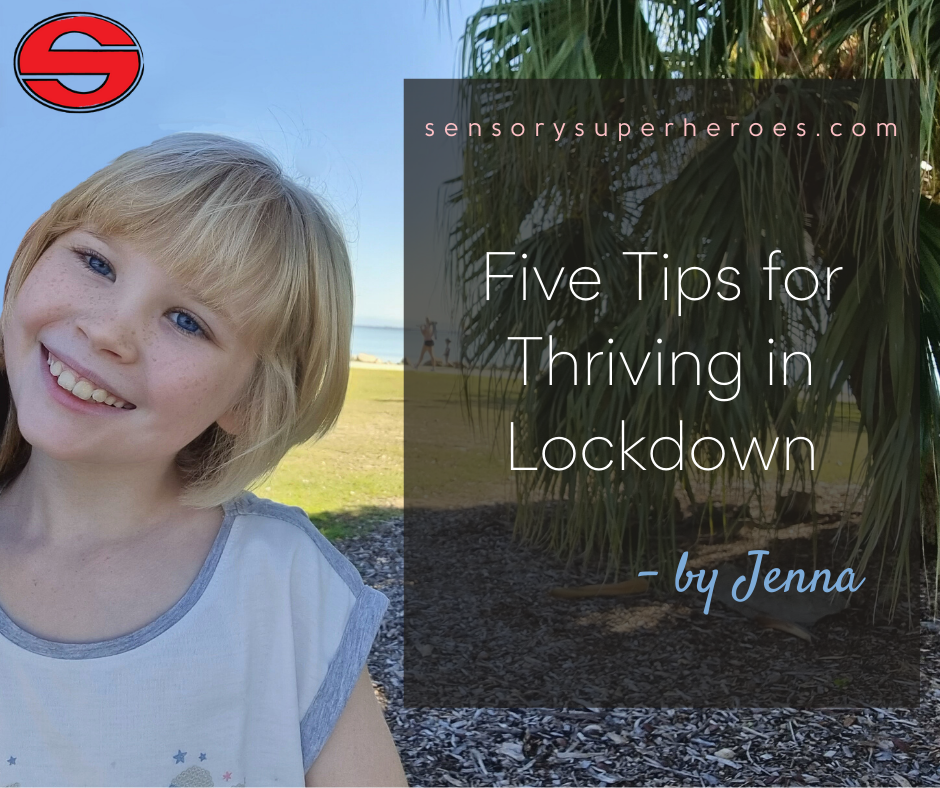
Five Tips for Thriving in Lockdown
1. GO OUT IN NATURE & MOVE
During lockdown it’s even more important to get out and exercise as a family if you can. The fresh air and movement will naturally increase the ‘feel good’ brain chemicals and hormones. Taking your shoes off and standing with bare feet on the earth has been proven to be very grounding and reduce anxiety. I have this little exercise that I talk the girls through: “with eyes closed, taking slow deep breathes into your belly and with bare feet on the ground, imagine big tree roots growing from the souls of your feet down into the ground, going down for kilometres, then spreading out for kilometres”.
2. BUILD IN PREDICTABILITY
In times of big change and uncertainty, our Little Super Heroes' brains, which are already wired for anxiety, will likely be freaking out more than neuro-typical brains... and will REALLY appreciate any ways you can give them the predictability they desperately need!!! You can build in activities and moments to their day that help their brains feel safe and secure... and help reduce the number of times that their fight/flight response is triggered.
Examples are:
- Get up at the same time every day and start by everyone making their bed and getting dressed (with help if necessary).
- Pick a favourite song (especially one from their early childhood, or even a year ago that brings up happy feelings) and play it a similar time every day or during the same activity such as every time they hop in the bath or every time they go and have quiet time.
- Use a visual routine for the day and week, but don't get too specific or make it too rigid (I like to call it "structure but with flexibility").
- When doing anything that has a set end or finish time, make sure your timer heads down to zero, or your activity counts down to zero (like bouncing on a mini tramp 10 times... starting at 10 and counting down, then jumping on zero from the tramp onto a Crash Bag).
3. KEEP FOOD COMFORTABLE
Lockdown is possibly not the best time to try new foods, textures, flavours or herbs/spices. It may be tempting to use this time at home together to finally make those changes you've been wanting to try, but perhaps consider keeping things the same as before lockdown, as there's already a lot of change for us and our Little Super Heroes to process.
4. HELP WITH HANDWRITING
For about two thirds of our Little Super Heroes, handwriting is a struggle. Often we'll see messy writing, slow speeds, hands that tire quickly and of course big time avoiding behaviours! I highly recommend setting them up with a Sloped Writing Board, pencil grips or special grip pacers like the Stabilo Easyergo. Of course it's important to still encourage some handwriting during lockdown so they don't lose any skills or stamina they've gained recently, however it's a great idea to do some work using technology (like voice to text apps) to achieve some of their writing assessments and let their creative juices flow! 😄
5. USE SENSORY GOODIES
Just a reminder to try and replicate the same sensory and fidget tools they have in the classroom, as your Little Super Hero will still need some help staying regulated and focused. Even without demands on learning from home, just being at home more than usual may require some extra creativity for keeping bodies and brains feeling 'just right' with plenty of variety and lovely strong sensory input like big movement (swinging / bouncing), and deep pressure for example.
Jenna ❤
